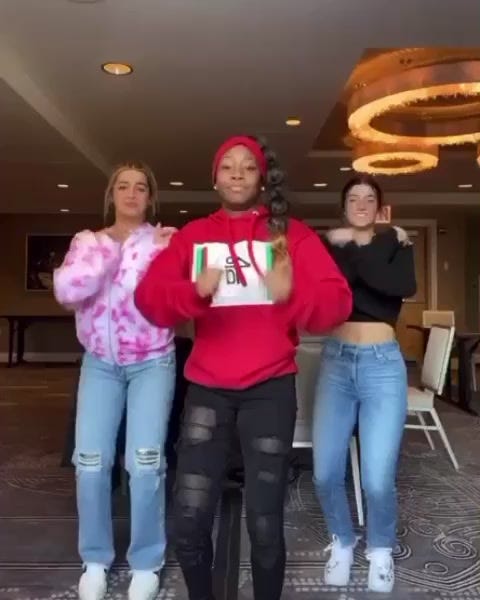Performative Feminism In the World of Social Media
And what the Renegade dance tells us
Words: Ma’Net, Los Angeles
Although feminism has brought along changes throughout the decades, it still does not necessarily benefit everyone who considers themself a woman. Many women continue to fight for simple rights that are continuously being taken from them while others have it given to them with open arms. Women of color, specifically Black women, are constantly looked down upon and rarely seen as victims, while the opposite can often be said for White women. This treatment can be tracked throughout the history of the United States, but I’d rather focus on the present.
In an age in which social media generates status and accountability for many, it also creates unachievable standards. Numerous people try to become influencers in the hopes of making it big, but their viewers hold them to standards that may ruin who they try to become. These viewers come with preferences on who should be made famous, always having to nitpick something from a certain creator in hopes that they’ll soon crack. This treatment happens more to Black influencers than to White influencers.
Many people seem to encourage diversity, but there is still widespread internalized colorism and featurism. If you don’t identify with the lighter skin complexion and European features that many viewers want, they’ll strip you apart until you conform to the wants and needs of social media. This means that many people of a darker complexion and more unique features find it harder to succeed. If you’re one of the few who do make it, you are constantly criticized. You receive threats simply for being yourself. Influencers like Jackie Aina, Monet McMichael, and Gloria, have to fight for a chance to prove themselves with the fear that they may never be accepted to be a popular influencer.
On the opposite side of the coin, many White women get famous without even trying. Influencers like Haliey Welch, the “hawk tuah” girl or Charli D'amelio became famous from a dance or a simple quote. The viewers are more accepting of these types of influencers because this is what social media has accepted. A fair skinned woman with less eccentric features is the ideal face that a person will expect, so that is what they believe they should accept. Their acceptance of this person will skyrocket their career compared to Black influencers. White influencers are more likely to get invitations to high demand events like the Golden Globe or the Grammys.
 Tiktok failed to load.
Tiktok failed to load.Enable 3rd party cookies or use another browser
Charli D’amelio is a specific case of favoritism in this category. She became famous for doing a dance on TikTok called the “Renegade,” which was originally created by then 14-year-old Jalaiah Harmon. Although Jalaiah created the dance, she didn’t get anywhere as much fame as Charli did. Viewers favored Charli over Jalaiah, creating the start of Charli’s fame. They labeled the dance as hers although she had no part in creating it, and became the most followed person on TikTok for two years. As for Jalaiah, it took years to rise to a fourth of the fame that Charli had. After the dance got popular, it took two years for her to be recognized by society and the media.
The difference in their rise to fame can be attributed to their race, society giving someone more fame than others simply because of their features or the color of their skin tone.
They saw Charli as someone that could be more loved by the media, while deciding to leave the true creator behind. The privileges that came from being white creator transferred to her fame, while Jalaiah had to struggle by being a Black creator.
With these hardships, it often discourages many women of color to simply not engage in the world of social media, but I suggest that they do it anyway. Many creators have shown defiance to the stereotypes and persevere through the expectations put in front of them. There has also been support shown by much of the audience that sees themselves in this set of new creators and influencers. They actively pave the way for many younger women to have the chance to grow up and be inspired by people who look like them. It also further pushes others to break the disparities seen within both feminism and social media so everyone can have a fair shot in what they love while also pushing for equality of people despite their race.
In short, for feminism to truly benefit everyone, people will have to drop their internalized colorist and racist ideals, leaving behind their favoritism for a certain influencer of a certain complexion or race. Dropping these philosophies of certain people will change your perspective on life, alongside helping others succeed in their dream lives. It encourages people who don’t usually see themselves in the media to try and become the person that they once needed. Although I doubt this could be a change that will happen overnight, small changes created by others will cause a major change under the concept of feminism. Continuing these changes will allow feminism to advocate for everyone, living up to the idea that many once fought for.
Ma’Net is a Los Angeles based participant in Youth Media Forward: meet the Los Angeles participants here



